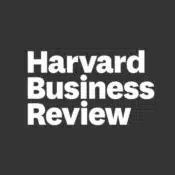How to Leverage Alumni Relationship Management in the New Normal
The pandemic has caused wide-reaching workforce shifts and impacts, from furloughs to layoffs, onsite to remote work, to surge demand for critical talent. Organizations need to engage and continuously nurture talent that has departed for any reason – whether voluntary or involuntary. According to SHRM, “Corporate alumni programs enable organizations to foster trusted, lifelong relationships with former employees through ongoing planned, strategic outreach.” Alumni relationship management is critical to every organization from a brand advocacy, alumni referral, business development, or sales perspective.
In today’s environment, countless employees and organizations have parted ways for reasons neither party wants. It’s more important than ever to create or nurture the alumni population to preserve brand reputation, sales and referrals in times of uncertainty and change. Many organizations are rethinking the employee experience and extending it beyond the exit experience to embrace alumni.
“It costs half as much to rehire an ex-employee as it does to hire a brand-new person. Rehires are 40% more productive in their first quarter of work.”

The three most common employee populations for alumni relationship management
Traditional employees
Negative employee experiences can cause former employees to refuse to purchase goods or services again or result in negative word of mouth for the brand. An intentionally designed offboarding experience and inclusion in an alumni program is a very impactful way to encourage positive brand advocacy. Alumni can be great contributors to and advocate for the brand as an employer as well as its products or services.
Seasonal hires
Alumni relationship management programs allow organizations to sustain engagement with seasonal or temporary employees. With alumni programs, seasonal hires have a centralized place to stay informed about open positions and easily re-apply. Boomerang seasonal hires are far more productive and impactful than traditional new hires.
Interns
Many organizations leverage alumni programs to re-attract interns back to full-time positions. Law firms, hospitals and professional services organizations invest a lot of capital into re-attracting high caliber interns or associates back to their firms. Both parties benefit from known entities – the organization has a better understanding of their potential, and former interns know what to expect if they accept a position.
Impact of Alumni Relationship Management
Alumni relationship management has a significant impact on costs, risks and revenue. Boomerang employees cost less to source and train, are far more productive at a faster rate and are less risky to the organization from a retention, competitive and culture-fit perspective than traditional employees. It also serves as a proactive measure to preserve an organization’s reputation as a brand and an employer.
Alumni relationship programs will be critical as organizations navigate changing marketplaces and business models that will require greater flexibility in their sourcing and workforce strategies. Organizations that maximize alumni as part of their sourcing strategy will be better positioned to adapt to change and deploy the right talent to the right place at the right cost than organizations that do not have an alumni relationship management strategy.



















